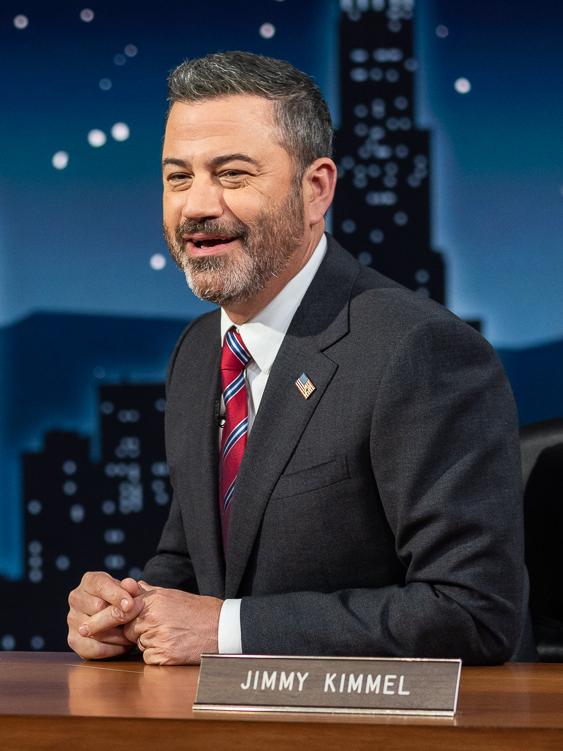Jimmy Kimmel’s late-night show was abruptly pulled off the air following mounting pressure from the Federal Communications Commission (FCC) over controversial remarks he made about conservative commentator Charlie Kirk. The move, which has sparked widespread debate about broadcast regulation and free speech, marks a rare intervention by the federal agency in prime-time entertainment programming. This article examines the events leading up to the FCC’s threats, the immediate fallout for Kimmel and his network, and the broader implications for media censorship in the United States.
Jimmy Kimmel Temporarily Removed from Broadcast Amid FCC Pressure
Amid escalating tensions with the Federal Communications Commission (FCC), Jimmy Kimmel’s late-night show was temporarily taken off the air following controversial remarks directed at political commentator Charlie Kirk. The network cited an increased regulatory crackdown as the primary reason for the hiatus, highlighting a growing unease over broadcast standards and the boundaries of free speech in televised content. Industry insiders suggest that this move signals a broader attempt by regulators to exert greater influence over prime-time programming, raising questions about the future landscape of political commentary on mainstream television.
Key factors driving the suspension include:
- Heightened FCC monitoring and enforcement policies post-controversial broadcasts
- Concerns over potential fines and legal actions against the broadcasting network
- Ongoing debates about the balance between political expression and broadcast decency standards
| Issue | Impact | Next Steps |
|---|---|---|
| FCC Compliance | Strict content review before airing | Enhanced legal oversight |
| Broadcast Suspension | Temporary removal of late-night show | Negotiations for reinstatement |
| Political Commentary | Increased scrutiny | New editorial guidelines |
Analysis of FCC’s Role in Regulating Broadcast Content and Its Impact on Talk Shows
The Federal Communications Commission (FCC) plays a pivotal role in overseeing broadcast content to ensure compliance with regulations aimed at maintaining decency and preventing harmful material on public airwaves. This regulatory authority came under intense scrutiny after the recent incident involving Jimmy Kimmel, who was pulled off the air following the FCC’s warnings about his remarks directed at political commentator Charlie Kirk. The FCC’s actions highlight the delicate balance between safeguarding free speech and enforcing content standards, a challenge increasingly complex in today’s polarized media landscape.
- Content Monitoring: The FCC actively monitors broadcasts for potential violations related to obscenity, indecency, and profanity.
- Enforcement Actions: Warnings and fines are common tools used to ensure broadcasters adhere to FCC guidelines.
- Impact on Creativity: These regulations can sometimes result in self-censorship among hosts of talk shows and other programs.
| Aspect | FCC’s Approach | Effect on Talk Shows |
|---|---|---|
| Regulatory Focus | Maintain public decency and order on broadcast content | Limits on provocative or politically charged remarks |
| Penalties | Fines, warnings, and potential broadcast suspensions | Pressure to moderate controversial dialogue |
| Free Speech Balance | Protects expression while enforcing standards | Creates tension between expression and compliance |
This episode underscores how the FCC’s enforcement policies inevitably ripple through the talk show ecosystem, shaping not only what can be said but also influencing the broader tone of public discourse. While aimed at protecting viewers from offensive content, these regulations also stir debate over the limits of free expression in media, forcing broadcasters to continuously navigate the line between engaging commentary and regulatory compliance.
Implications for Media Freedom and Future Network Compliance Strategies
Broadcasters are navigating an increasingly complex regulatory environment where comments made on air can trigger significant repercussions. The recent cessation of Jimmy Kimmel’s show reveals how stringent enforcement by the Federal Communications Commission (FCC) shapes media behavior, potentially fostering a climate where self-censorship becomes a defensive norm. This incident serves as a cautionary tale for media outlets aiming to balance editorial freedom with compliance demands, urging networks to reevaluate their oversight mechanisms and content review processes to avoid punitive actions.
Future compliance strategies will likely emphasize proactive engagement with regulatory frameworks combined with transparent internal policies. Industry players may adopt:
- Enhanced legal teams specializing in FCC regulations and defamation law
- Real-time content monitoring systems to flag potentially sensitive topics before broadcast
- Comprehensive training for on-air talent on compliant speech and risk management
- Collaboration forums between networks and regulators to clarify boundaries and foster mutual understanding
| Compliance Element | Potential Impact |
|---|---|
| Content Screening Tools | Reduces risky broadcasts |
| Regulatory Consultation | Improves clarity on FCC requirements |
| Talent Education Programs | Minimizes accidental violations |
| Formalized Response Plans | Speeds crisis mitigation |
Recommendations for Networks Navigating Controversial Commentary and Regulatory Challenges
To effectively manage the fallout from controversial commentary and looming regulatory actions, networks must prioritize transparency with their audience while adhering to broadcast standards. Maintaining open channels of communication allows networks to address public concerns proactively and demonstrate accountability. Additionally, establishing a clear editorial policy that balances creative freedom with legal obligations can serve as a safeguard against unpredictable regulatory scrutiny, helping to minimize risks associated with off-air suspensions or FCC penalties.
Key strategies for networks include:
- Implementing robust content review processes: Routine monitoring and legal vetting of sensitive material to avoid breaches.
- Training on compliance and ethics: Equipping hosts and producers with guidelines to navigate delicate topics responsibly.
- Engaging with regulators proactively: Establishing dialogue with agencies like the FCC to clarify enforcement expectations.
- Preparing contingency plans: Developing swift response protocols for potential sanctions or public backlash.
| Challenge | Recommendation |
|---|---|
| Controversial remarks on-air | Pre-broadcast content vetting |
| FCC regulatory scrutiny | Legal compliance training |
| Audience backlash | Transparent public statements |
| Host suspension risks | Contingency communication plans |
To Wrap It Up
As the controversy surrounding Jimmy Kimmel’s remarks about Charlie Kirk escalates, the broadcaster’s temporary removal from the airwaves underscores the growing tensions between media personalities and regulatory bodies such as the FCC. This incident highlights the delicate balance between free expression and compliance with broadcast standards, raising critical questions about the future landscape of political commentary on public platforms. USA Today will continue to monitor developments in this story as both the network and regulators respond to the unfolding situation.




